
Another day, another rocket launch. So many, in fact, it's easy to get blasé. In 2023, almost 200 rockets lifted off from Earth, carrying satellites and other spacecraft into orbit. By early September this year, the number for 2024 had already reached 158, most of them from Elon Musk's SpaceX company which has launched 89 rockets and is aiming for around 150 by year's end.
In October, one of those additional SpaceX launches will carry the European Space Agency's (ESA) Hera mission into space. Although one more launch may seem almost insignificant, Hera could prove to be one of the most important missions ever launched, because it'll tell us how capable we are of deflecting asteroids.
In November 2021, NASA launched the Double Asteroid Redirection Test (DART) mission. It targeted Dimorphos, a small asteroid with a diameter of 177m (580ft) in orbit around a larger one called Didymos. The DART spacecraft would collide with Dimorphos on purpose to see if it could alter its orbit around Didymos. Any change would be reflected in a shift in the small moonlet's orbital period.
The mission was designed to test a deflection technique known as the kinetic impactor essentially smashing one thing into another - and it succeeded spectacularly. The spacecraft impacted Dimorphos at a speed of approximately 6.6km/s (over 14,750mph) in September 2022, changing its orbital period around Didymos by 33 minutes - far more than had been expected.
It was a historic moment, marking the first time we had intentionally altered the trajectory of a celestial body.
"DART has really shown how effective a kinetic impactor can be in moving and diverting small asteroids. It was a complete and utter success of a mission," says Prof Alan Fitzsimmons, an astronomer from Queen's University Belfast, Northern Ireland, who specialises in asteroid research.
This story is from the October 2024 edition of BBC Science Focus.
Start your 7-day Magzter GOLD free trial to access thousands of curated premium stories, and 9,000+ magazines and newspapers.
Already a subscriber ? Sign In
This story is from the October 2024 edition of BBC Science Focus.
Start your 7-day Magzter GOLD free trial to access thousands of curated premium stories, and 9,000+ magazines and newspapers.
Already a subscriber? Sign In

THE WORST IDEAS OF THE 21ST CENTURY
NOT ALL IDEAS CAN BE HITS. ALONGSIDE GROUND-BREAKING INNOVATIONS, 21ST-CENTURY SCIENTISTS HAVE HELMED THEIR SHARE OF WILD TECH FLOPS, DUBIOUS THEORIES AND OVERHYPED BREAKTHROUGHS. HERE ARE THE BIGGEST TO FORGET
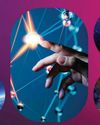
10 IDEAS THAT WILL SHAPE YOUR NEXT 25 YEARS
Predicting the future is considered a fool's game. But it's one many of us like to play.
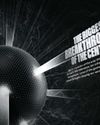
THE BIGGEST BREAKTHROUGHS OF THE CENTURY
We're a quarter of the way into the new century. To mark this milestone, we asked the UK's top minds to highlight some of the game-changing scientific breakthroughs shaping our world since the year 2000
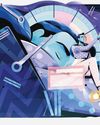
DO THE SCIENCE COGNITIVE SHUFFLE
Trouble sleeping? A lot on your mind? Use this trick and sedate your synapses
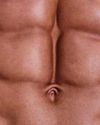
WHAT DETERMINES HOW MANY ABS I CAN GET?
Assuming you're a human being, you have exactly the same number of abs as everybody else: two.

HOW CAN I IDENTIFY MY PSYCHOLOGICAL BLIND SPOT?
In the 1950s two American psychologists, Joseph Luft and Harrington Ingham, proposed a way of thinking about psychological blind spots - things you don't know about yourself - that they called the 'Johari Window' (the term is a combination of their first names).

How can I change my personality?
Want to become more confident, extroverted or assertive? Science shows that with a few simple changes, you can unlock your best self

Could your cosmetics be harming your health?
Cosmetic companies are phasing out microplastics and so-called 'forever chemicals' to help protect consumers.
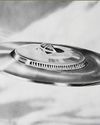
extraterrestrial US Congress is talking about activity again. Is the truth really out there?
Despite several testimonies, the question remains frustratingly unanswered
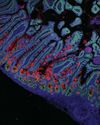
Map of 100 million human body cells revealed
Over three dozen new studies mark significant milestone towards complete Human Cell Atlas